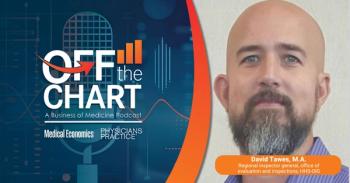
Why Will the Federal Reserve Increase Interest Rates?
What would it mean physicians if the Fed raises interest rates again? Here is a guide that breaks down the scenario.
Physicians cannot read a financial publication or watch financial TV without endless speculation on “When will the Fed raise interest rates again?” What does this mean for practices and why will it happen?
Traditionally, the Federal Reserve (Fed) uses a number of mechanisms to influence banks to either lend money at a lower or higher interest rate. When the economy is slowing and/or unemployment is high, the Federal Reserve will seek to make the banks loan cheaply in order to stir economic activity. Conversely, if the economy is heating up, and especially if prices are rising quickly, the Fed will seek to make borrowing more expensive by tightening up the money supply by increasing short term interest rates.
Up until recently, the Fed did not directly seek to influence long term rates, but this changed with the onset over the last few years (now over) of Quantitative Easing-in, which the Fed bought long-term debt on the markets (especially mortgages) in order to lower long term rates.
The US has had an almost “zero rate interest policy” for the six years since the great recession. The economy is starting to recover, albeit very slowly. The Fed is advertising that higher rates are coming, and actually boosted short-term rates by a quarter of one percent in December 2015. Why?
First, almost free money is a distortion of market forces. No rational individual would lend you money at a zero interest rate (unless we have significant deflation), so why should the government do so? In addition, keeping interest rates artificially low is a terrible penalty for savers.
Second, the Fed worries about inflation. Although government measures of inflation seem tame to date, there is a suggestion of wage inflation recently (Walmart, for example) and with unemployment dropping, the Fed is rational to expect more. Raising short-term rates traditionally puts a brake on inflation.
Finally, the Fed needs to reload its tools for the next economic weakness. If interest rates are zero and we have some economic slowing, there is little the Fed can do to stimulate. They need higher baseline rates from which to make changes.
So, expect higher rates-but when is uncertain. The effect on markets is also uncertain, and the most we can say is that a rapid move to markedly higher rates generally hurts both equity and fixed income markets. Conversely, a gradual rise with a stronger economy can be well tolerated.
Interestingly, just as the Fed moved rates up in December, the U.S. markets suffered and global economic instability seemed to worse. The Fed's response recently is to back off on its suggestion that higher rates were planned for this year. We'll see.
Newsletter
Optimize your practice with the Physicians Practice newsletter, offering management pearls, leadership tips, and business strategies tailored for practice administrators and physicians of any specialty.








